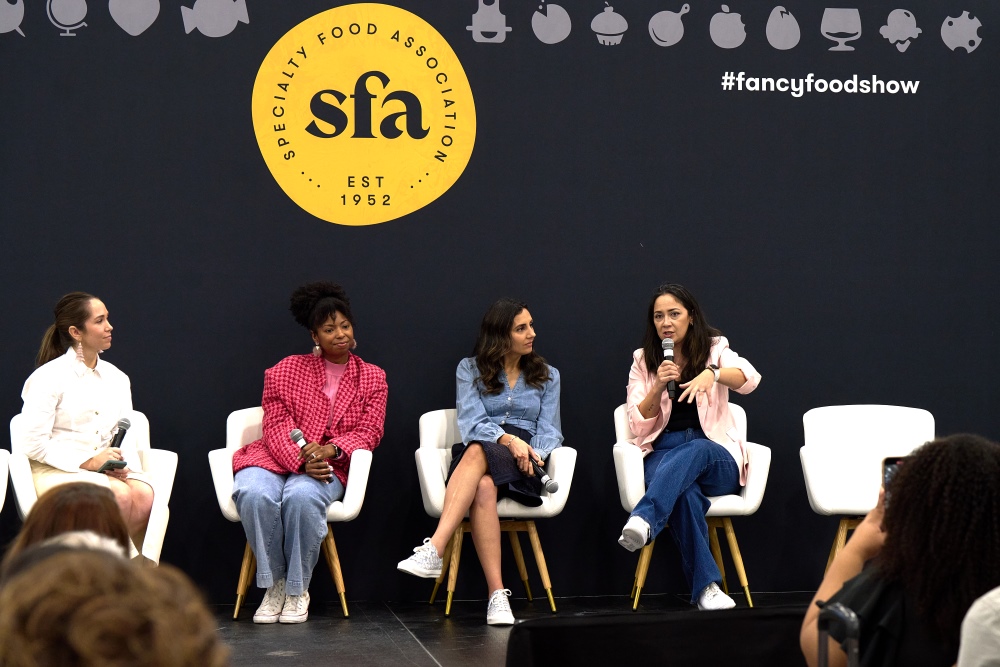“Trends that happen on [Instagram and TikTok] can make ingredients go out of stock in stores because everyone wants to know what the other person is talking about,” said Liz Marek, influencer, and champion of the Sugar Geek Show.
Social media is a popular tool, and it is important for food and beverage industry members, from makers to distributors, to understand the effect that influencers can have on specialty food.
During an influencer panel discussion at the Winter Fancy Food Show in Las Vegas about how influencers shape culinary trends, Abbey Rodriguez, founder and CEO of Tastemaker Conference led a conversation with Marek, Jocelyn Delk Adams of Grandbaby Cakes, and Yumna Jawad of Feed Good Foodie. They discussed ways makers can leverage opportunities presented by culinary influencers.
For many larger influencers, there is often a balancing act between ‘trend follower’ and ‘trendsetter.’
“The thing that helps [influencers] to stay relevant is to not follow trends but have trends follow us. To do that, we have to remain authentic,” said Adams. “And we have to be steeped in a space that is realistic and allows people to follow us and say ‘Oh, I want to try that because that’s something that makes sense for me, or something my grandmother used to make.”
Adams said that people respond to emotional ties, adding that when she follows trends, it starts with nostalgia and authenticity.
Rodriguez agreed, noting that the story is central to both those interested in food and those who produce food. For a specialty food maker to get the most out of a social media influencer, they should try finding someone that resonates with their story in an authentic way.
Marek said that, in order to remain authentic to her followers, she considers three questions before amplifying a story or trend.
1. Is it interesting or 'shareable’?
2. Will it give someone knowledge?
3. Is it entertaining and relatable?
She emphasized the importance of remaining true to oneself and to one’s brand, “because people crave authenticity.”
The influencers advised small and emerging makers to reach out to micro- and nano-influencers that resonate with their brand and have follower bases that would be interested in the product. Adams said that hashtags are very important as are online groups of local-focused bloggers and influencers that can help a brand target a region and get started on growing its social media presence despite not having a large distribution footprint.
“Most of the time, people making products don’t have a clue about how to sell it on social media. We need each other,” said Marek.
The panel also discussed the differences between the social platforms, which can be important for brands because the knowledge can help them choose a channel that aligns with their image.
For example, Marek explained that Instagram is a “beautiful” place, whereas TikTok is more “behind the scenes."
“Show up for different platforms differently,” said Jawad. There is a different audience for each platform, and it is crucial to know how to tailor a brand’s message to each or decide which to pursue.
Related: Market Hall Foods' Robinson Discusses How She Buys; Researchers Discuss Foodservice, Retail Trends


